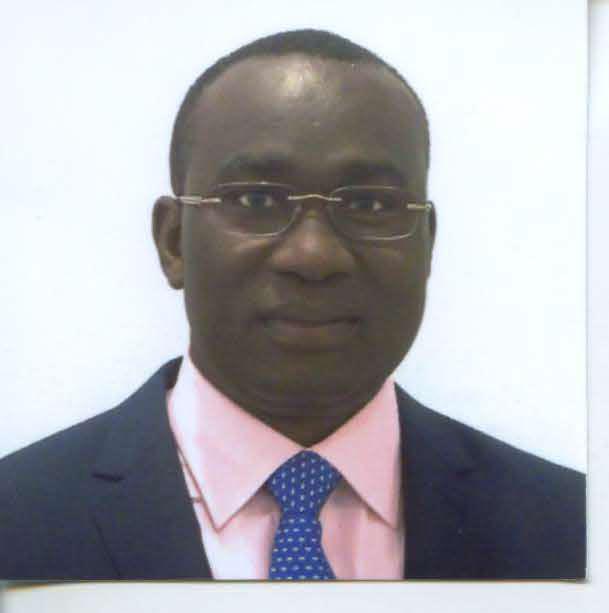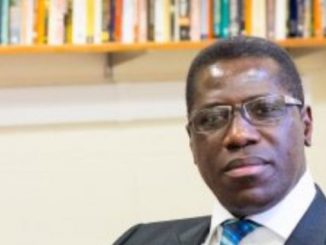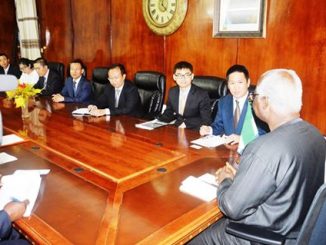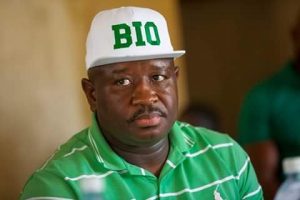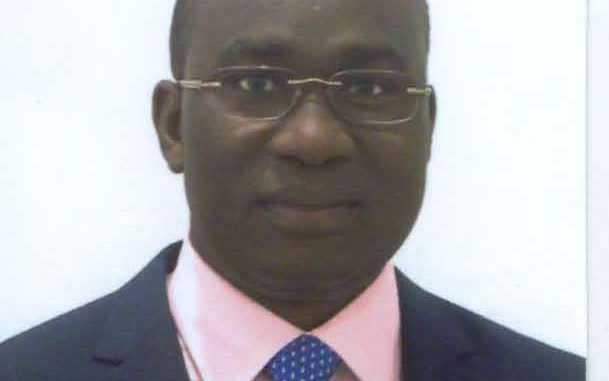
The Ascendancy of Sierra Leone’s Supreme Court
Time to Celebrate a Victory
By
Suphian Kalokoh, JD, MBA
Like many of my compatriots, I have been following events surrounding the replacement of the Vice President. I have read the relevant provisions of the constitution. I have also read the interpretation proffered by the President, as well as those opposed to him.
The President argues:
- That Section 41(b) requires that the Vice President continuously belong to a registered political party as long as he holds the office;
- That, if at any time during his tenure, the Vice President should cease to be a member of a registered party, he thereby ceases to be Vice President and, by operation of law, the position of Vice President becomes vacant without the need for impeachment, thus allowing the President, under Section 54, to appoint a new Vice President.
Opponents argue:
- That Section 41(b) requires that the Vice President belong to a registered political party only at the time of election, and this requirement does not apply to one who has already been elected;
- That even if the Section 41(b) requirement were to be construed as continuous, loss of party membership perhaps only provides grounds for the President, through parliament, to initiate impeachment proceedings against the Vice President.
There are other ancillary arguments (and alternative arguments, such as abandonment by the VP), but the two above form the centerpiece of all the others.
Without looking at the notes from the drafters of the constitution (if notes exist), it is difficult to tell what they had in mind when they wrote the language of Section 41(b) and related sections. As an attorney, I do have some thoughts on how these sections ought to be construed, but will leave that for another day, especially since the Supreme Court has issued a gag order. I considered making a submission to the Court as amicus curiae (if that is permitted) but I am not sure I have enough information to formulate an opinion that would be as sophisticated as I would like. So I have decided to focus on a broader issue.
My purpose here is to point out what seems to be lost in the rather adversarial character of this debate. Sierra Leone is on the verge of resolving a major constitutional issue through its Supreme Court. An institution that has laid practically dormant for so many decades is suddenly emerging, and rightly so, as the referee of our democracy. I do not know any of the men and women on the Court but I can imagine the thrill they must feel. It is very rare that an attorney gets a chance to sit on the highest court, and still rarer to get the opportunity to decide a constitutional issue of this magnitude. My thoughts and prayers are with them as they discharge this awesome duty.
Let me say at the outset that what is happening in Sierra Leone is not unusual. Presidents challenge constitutional provisions; we live that reality every day in the United States, the most recent being President Obama’s Presidential order on immigration (Republican challenges to that order are still making it through the court system). In fact, historically, many challenges to national constitutions have originated from the President’s office. And that makes sense; a President is entrusted with managing the affairs of state, and he is not a dispassionate by-stander. As you might expect, he has a strong point of view about the constitution and how government should work, and often uses the Presidential bully pulpit to advance that point of view. If the principles of democracy work, the issue often ends up in the hands of a supreme court of judicature for final arbitration. So it is in the United States, and so shall it be in Sierra Leone.
Constitutional interpretation is a messy, complicated exercise, and Supreme Court rulings can have dramatic consequences. I assure you, no jurist takes this task lightly. When all the arguments have been made, for and against, the justices will retire to their chambers to deliberate, and each of them will reach a conclusion. That conclusion will be the product of the totality of his/her background – academic, professional, political, and religious. It will also be the product of other factors, such as, gender, age, life experiences, public opinion, and a general point of view about how government should work. And yes, every jurist in the world has personal biases; it’s human.
Through the Court’s own defined process, the final ruling will reflect some or all of the individual conclusions of the justices. When that opinion is delivered it will be the right decision, and it will be the wrong decision, depending on where you stand in the debate. If the justices have done their job, the opinion should provoke extreme reactions, both negative and positive. Supreme Court decisions are notorious for dividing citizens and provoking political debate, and it is very rare that they miss an opportunity to do so. In constitutional democracies like ours (and the United States), the Supreme Court, through its rulings, has no equal in its ability to inspire political action. In other words, they make a contribution to the growth of democracy like no other.
However, when all the dust settles, there is one very basic truth that we always return to: no matter how strongly you disagree with the ruling, no matter how incompetent or biased you think the justices are, no matter how “bad” the opinion is, we must accept it; it is the law. Like Chief Justice John Marshall declared in the landmark case of Marbury vs. Madison, “it is emphatically the province and duty of the judicial department to say what the law is.”
This finality, my friends, is the dramatic high point of democracy, and it never fails to excite me. It means we have a process of resolving political disagreements without resort to violence. And for someone like me, who spent his student days leading the fight for democracy, I could not ask for more. Think about the election dispute of Bush v. Gore. After all the billions spent, and the millions of votes cast, a group of nine men and women sat in a room and pronounced the President of the United States. What many people thought was a weakness in the American electoral process ended up showcasing the most enduring attribute of American democracy – the Supreme Court. I remember many African friends expressing the sentiment that if this happened in Africa, it would have led to war. It need not be so. In a democracy, preserving the structure and the process is more important than attaining a given short-term result. Every time the Supreme Court hands down a ruling society wins, and it is never a complete loss for the party that did not prevail.
To those who have spoken out, who have marched in opposition to, or in support of, the President, I have a message for you: no matter how the ruling comes out, you should take sober satisfaction in the fact that you have been in the front lines in advancing democracy in Sierra Leone. Our constitution is only 24 years old, and this is one of the first major challenges to its provisions. There will be many more, and in one of life’s unknowns, there is an “honest-to-God” chance that you might be called upon to deliver the Opinion of the Court. So preserve the system. Finally, I would hope that the Constitutional Review Committee is paying close attention to all of this, with a view to minimizing ambiguity, especially in the most important provisions. The work of constitutional development is never really complete, but we should seize every opportunity to make the document stronger.
Congratulations to Sierra Leone!! Democracy has truly arrived. Now we just need to get used to it. In the meantime, please enjoy the magic of constitutional interpretation, and do not forget to celebrate this victory – our democratic process is working.
Author
Suphian Kalokoh holds a Doctor of Law, a Master of Business Administration, and a Master of Arts in International Affairs. He is a corporate attorney, a member of the American Bar Association, and a member of the World Affairs Council. He is Vice President for Strategy and Regulation at Wells Fargo Bank in the United States. He was formally President of the Students’ Union of Fourah Bay College.

